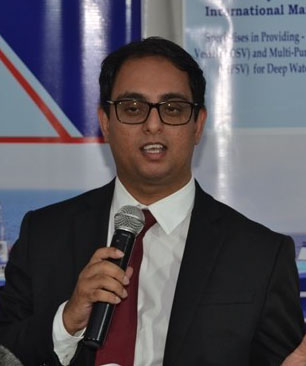The third draft of Guyana’s Local Content Policy has received mixed reviews from the private sector, with some hailing the proposed measures to ensure that Guyanese benefit from the oil and gas sector, while others say more needs to be done.
On Wednesday evening, a panel discussion, which saw presentations by some nine persons, was held at Duke Lodge. The public forum focussed on the third draft of the Local Content Policy, which the Department of Energy has distributed to the private sector and other civil society bodies for feedback.
The panelists were former Minister of Natural Resource Robert Persaud, President of the American Chamber of Commerce Guyana Inc (AmCham Guyana) Zulfikar Ally, President of the Guyana Manufacturing and Services Association Clinton Williams, President of the Georgetown Chamber of Commerce & Industry (GCCI) Nicholas Deygoo-Boyer, Past President of the GCCI Deodat Indar, Chairperson of the GCCI’s Petroleum Committee Charles Ramson Jr, Executive Member of the Private Sector Commission Ramesh Dookhoo, Professor of Business and Dean of the School of Entrepreneurship & Business Development at the University of Guyana Leyland Lucas, and head of the Environmental Protection Agency Vincent Adams.

Indar said that while the policy is a “step up” from the previous drafts, it is not only coming late but is not tied to legislation to ensure that locals get the opportunities they deserve.
“I will endorse this third draft as a step up but it still [has] problems… you have to get legislation for this thing to work,” he stressed.
For AmCham Guyana’s Ally, the policy has good implementation plans and ties in with current oil and gas contracts but he emphasised that the companies must be monitored to ensure that they are complying with the document.
“I believe that the proposed local content plan and its requirements for the developers, contractors and suppliers to report half yearly on implementation timelines is welcomed…,” he said.
“Petroleum Agreements also outline reporting requirements. Hence, we have to make sure that this policy is consistent with those agreements that national authorities have signed on to and we have to ensure that these are monitored,” he added.
Like Indar, Ally believes that from a national perspective, Guyanese will also have to look at whether the objectives of the local content policy are supported by existing legislation, which were designed to support previous policy goals.
“I think we are all aware [that] Guyana has become an attractive destination for foreign companies. In the past, all efforts were made to attract these companies to Guyana with the provision of incentives, tax holidays and duty-free concessions. The country no longer have to be overly generous with this policy, but [have] to now ensure that the local private sector, Guyanese, especially the SMEs [small and medium-sized enterprises] also benefit from these concessions and duty-free [concessions] in order to build their capacity to enter this new sector,” he said.
But key to local content development, he believes, is the early understanding of opportunities, challenges and barriers to enable Guyanese workforce and business participation. He said that this analysis, when conducted and performed collaboratively with industry, can support developing capacity with realistic targets while avoiding unintended consequences.
Meanwhile, a passionate Indar said he believes that this country focusses too much on playing by every rule for market and trade to the detriment of its people. He said that while Guyana is the most liberal at upholding the CARICOM trade principles, the very countries we facilitate are hostile to us but take up jobs here.
“Guyanese always go as if you have to adhere to the Treaty of Chaguaramas to the ‘T’ or you going to hell. Well damn that! I’m sorry to say that, because if I go to Trinidad, I can’t go and set up my business, and I can’t do what they coming [to do here]. If I go to Barbados or the US, or any other country, you can’t go and do the things we see happening here. Somebody needs to stand up and move out the politics and move back all the grandstanding and call a spade a spade. It is just not right!” he said.
The businessman pointed out that persons from other countries come to Guyana, go to the Deeds and Commercial Registry and register their companies and then claim to be a local business. “A Guyanese company can’t be somebody just off the radar, who go and register something at the High Court,” he said.
But he noted that through partnerships, Guyanese would be able to access the skills brought by some of the companies, even as they work to build their own capacities.
For Persaud, building local content must be tied to an apolitical nationalistic development strategy.
“I see local content as bridging the expectations gap between what is taking place in the industry and what it means to the ordinary man and woman. The Local Content Policy has to be linked…it has to be mainstreamed in a national development strategy, not an environmental strategy, which is the Green State Development Strategy, but a national development strategy that looks where the country is going to be in 2030, in 2040…,” said the former minister.
“A national development strategy has to be owned by all stakeholders, not a party…the Local Content Policy has to be situated in that,” he said.
Persaud believes that it has to also link not only with the Natural Resources Fund but to how the revenue from the sector is utilised. “I see the Local Content Policy having a link to the overall framework of how we govern and manage the sector,” he said.






